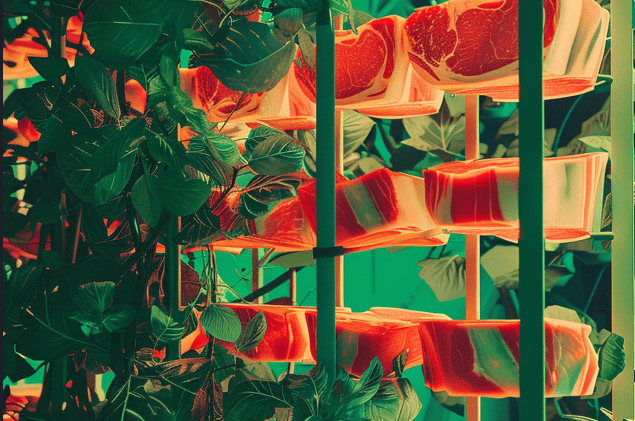
Christmas holidays always produce large amounts of waste in private households. Presents ordered online are delivered in cardboard boxes and large amounts of packaged food are purchased in advance for the Christmas dinner. Students of Karlsruhe Institute of Technology (KIT) have now developed a process to turn so far hardly recyclable plastics from food packages into reusable shipping boxes.
Thanks to sophisticated packagings, milk, juice or assorted cheese slices remain fresh, aromatic, and protected for a long time. In most cases, these packagings are made of bonded layers of plastics, such as polyethylene, polypropylene, or PET, which are several millimeters to nanometers thin. These layers are kept together by plastic adhesives, such as polyurethane. They cannot be separated from each other by classical processes, such as crushing, screening, or centrifugation. Also a thermal treatment is not suited for this purpose, as the melting points of the layers are too close to each other. “Our idea is to use solvents to dissolve the adhesive between the foils and separate the layers afterwards,” says Paul Neugebauer, master’s student of chemical engineering and process technology at KIT. He and four fellow students of engineering have developed a recycling process to recover pure plastics from multi-layered packagings, writes KIT in a press release. Recycled Polymer Packaging Karlsruhe, RepoPaK for short, is the name of the recycled shipping box produced from the old plastics by the students.
With their concept, the young engineers won first prize at the 2021 Germany-wide chemPLANT competition launched by the Society Chemical and Process Engineering of the Association of German Engineers (VDI). The challenge was to develop an innovative, sustainable, and economically efficient concept for recycling to manufacture a product of higher value. The point of departure was the typical household waste mix in a large city in Germany. Lightweight plastic packagings have the largest share in the packaging waste collected from private households. According to the Federal Statistical Office, it amounted to 32 kg per person in 2019.
Foldable Reusable Shipping Box
“The second part of our concept focuses on the future, because RepoPaK can be transported with drones and is waterproof. Thanks to its honeycomb structure, it is stable and has a small weight. Compared to cardboard boxes used today, it will be ideal for automated shipping in the future,” says Philipp Beeskow from the RepoPaK team. And the boxes are foldable. Having taken out the Christmas presents delivered by online retailers, the boxes can be stored in smallest space until reuse. Boxes of variable size, from the shoebox to the big package, can be produced from a recycled plastic material that is suited for the respective volume, the young engineers say. As these boxes consist of a single material only, they can be recycled easily at the end of their service life. Compared to single-use shipping boxes, manufacturing costs, energy consumption, and CO2 emission are reduced. And the waste volume decreases. In this way, waste is used to avoid waste and another step is made towards circular economy, the team points out.
Also interesting: Recycle without having to do any of the sorting yourself
Selected for you!
Innovation Origins is the European platform for innovation news. In addition to the many reports from our own editors in 15 European countries, we select the most important press releases from reliable sources. This way you can stay up to date on what is happening in the world of innovation. Are you or do you know an organization that should not be missing from our list of selected sources? Then report to our editorial team.







